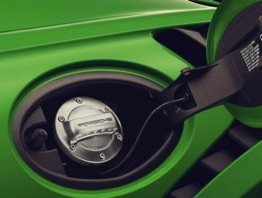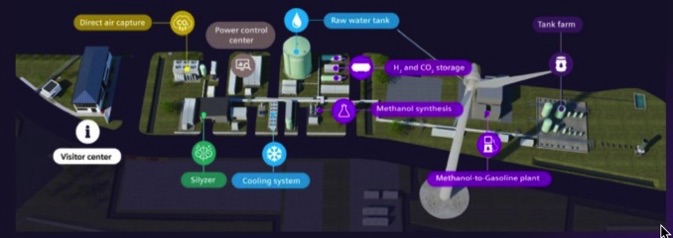Published in the March 2021 issue of “Porsche Profile”
Ⓒ2021 Technolab / PedrosGarage.com

For more information on Synthetic Fuel and more, please visit my website:
www PedrosGarage.com.
Happy Porsche'ing,

From Merriam-Webster’s
adjective
syn•thet•ic | \ sin-the-tik
: devised, arranged, or
fabricated for special situations
to imitate or replace usual realities
noun
: something resulting from synthesis
rather than occurring naturally
especially: a product (such as a fuel)
of chemical synthesis

We have used for many years a great deal of synthetic products in our Porsches, from the plastic and composite parts in most areas of the vehicle, to the adhesives that keep them together, to the Mobil1 synthetic motor oil that comes from the factory to lubricate and cool our engines.
But, we may be using a brand new synthetic product soon: Synthetic Fuel.

Well, brand new may not be very precise. Audi, Bosch and McLaren, among others, have been talking about working on the technology for years. But further back, to be precise in the late 1930s, Nazi Germany had already developed and perfected the hydrogenation process to supply the Nazi War Machine its fuel needs by way of synthetic fuels made from it’s vast domestic supplies of coal.
What may be surprising is that technology is still in use today, in particular in South Africa. After apartheid was instituted, many oil-producing nations refused to sell oil to the apartheid regime and a local company (Sasol) was created to produce synthetic gas and oils for their domestic use. The plant is still productive, and since it’s inception, Sasol has produced over 1.5 billion gallons of gasoline, which is basically no different than the gasoline produced from Texas crude oil.
In the last year, Porsche has been talking up a storm regarding synthetic fuels. Even though, as a company, Porsche is committed to going full electric across it’s platforms in a few short years, they also understand that older Porsches will be around for many years to come and their owners want to keep enjoying them as they have in the past. Porsche wants therefore to significantly and independently drive forward the development of synthetic fuels, also known as eFuels.
“This technology is particularly important because the combustion engine will continue to dominate the automotive world for many years to come,” says Michael Steiner, Member of Porsche’s Executive Board, Research and Development. "If you want to operate the existing fleet in a sustainable manner, eFuels are a fundamental component."
"We have a team that is looking for suitable partners who want to build pilot plants with us and prove that the entire process chain works and can be industrialized," says Steiner.
eFuels are produced from CO2 and hydrogen, using renewable energy. In terms of their basic properties they are no different from any other fuel produced from crude oil, however, they can ideally be a climate-neutral fuel.
Porsche believes in eFuels so much that they are considering entering Formula 1, if the series commits to going greener – specifically with synthetic fuels. Porsche believes that by using eFuel to power an internal combustion engine (ICE) car, emissions can be reduced by 85% and can be as clean as a battery-electric vehicle when wheel-to-well life cycles are taken into account.
The eFuels Porsche is talking about are completely man-made and do not contain unwanted elements, as fossil fuels do, that get converted into pollutants in the combustion process. These fuels could power existing ICE cars without any modifications.

A plant in southern Chile will implement a proprietary methanol-to-gasoline process under license by Exxon Mobil. Water will be split into hydrogen and oxygen by electrolysis and CO2 will be filtered out of the air and processed with the hydrogen to create synthetic methanol. Then the proprietary methanol-to-gasoline work comes into play.
Porsche says that the eFuel works on everything from the latest-generation GT3 to a classic 911 from many decades ago.
In 2022, Porsche will begin trials of the eFuel with production of some 34,000 gallons. By 2026 Porsche says that if everything goes according to plan, we could see a production of 145 million gallons.
I guess most of us will still be around to use eFuel in our beloved ICE Porsches. I can’t wait to fill my (300K plus miles) 1998 Boxster with eFuel. I can then drive it another 300,000 miles as guilt-free as if I was driving a Taycan.

